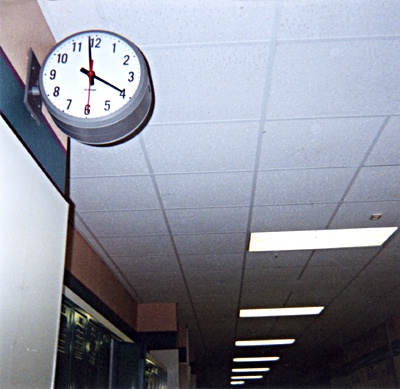All Nonfiction
- Bullying
- Books
- Academic
- Author Interviews
- Celebrity interviews
- College Articles
- College Essays
- Educator of the Year
- Heroes
- Interviews
- Memoir
- Personal Experience
- Sports
- Travel & Culture
All Opinions
- Bullying
- Current Events / Politics
- Discrimination
- Drugs / Alcohol / Smoking
- Entertainment / Celebrities
- Environment
- Love / Relationships
- Movies / Music / TV
- Pop Culture / Trends
- School / College
- Social Issues / Civics
- Spirituality / Religion
- Sports / Hobbies
All Hot Topics
- Bullying
- Community Service
- Environment
- Health
- Letters to the Editor
- Pride & Prejudice
- What Matters
- Back
Summer Guide
- Program Links
- Program Reviews
- Back
College Guide
- College Links
- College Reviews
- College Essays
- College Articles
- Back
School Shooter Generation
I glanced up at the tv screen as I dashed around the living room, frantically collecting everything I needed for school, barely awake–and suddenly recoiled in shock.
SCHOOL SHOOTER IN PARKLAND FLORIDA
The headline sat on the screen in thick, red, unmistakable text that my mind still couldn’t—wouldn’t—understand. Above the hovering words was a clip taken from shaking hands of students waiting like sitting ducks in a classroom, student-made captions blurred out because apparently the language they used while being shot at was unsuitable for most viewers, apparently swearing is still unacceptable even as bullets fly over your head and gunshots ring around you. More videos flashed on the screen as I watched in utter horror, unable to pull my gaze away from the bright colors as my stomach began to churn. I felt my eyes close, but all I saw were students running out of the building like fish fleeing a shark and sirens that resounded through the room from the television, joining my mental images in a terrifying twisted harmony of death and chaos.
Seventeen people died that day. Seventeen. That’s more than the number of years I have been alive, more than the number of years most of those kids had been alive. It’s the age where teens start to finally decide where they want to go to college, what they want to do with their new-found courage and freedom. But that was not so. Instead, there were seventeen caskets being ordered, seventeen funerals being arranged, seventeen loved ones who wouldn’t be coming home tonight.
This shooting brought death on a scale seldom seen into America’s schools. It brought it into America’s homes, dumped it on our porches and placed it on the center table. Suddenly, gun violence wasn’t untouchable anymore. It was tangible and unignorable, all over the news and the media and everywhere, plastered on every screen and mind.
And the students of the country are refusing to let this slide like all the other shootings had. We need more than thoughts and prayers. We need something to change. We fought back, organizing walk-outs and marches with those social media things that adults so dislike. On March 24, we showed up in droves to marches all across the country. That march is said to be the “largest single-day protest in the history of the nation's capital,” based on the estimate of 800,000 participants lining the streets of D.C. alone (Durando).
We are not going to forget the lives lost in Florida that day, nor will we forget this issue of gun control.
And we, the students, should be respected with our opinions. Too many adults tell us to act like adults, then immediately discredit us when we try. Why is it, that when my opinion differs from that of most adults, it is suddenly invalid? Why is it, when I begin to think for myself, it is suddenly not important because a few kids ate some tide pods? Why is it, while telling us what to think and how to “act like adults,” they really mean to conform to their ideals? And why is many adults’ first reaction to this movement to personally attack the leaders? We, the students, are doing peaceful protests like mature grown-ups, yet the only thing many can think to do is mention a fad blown out of proportion by the media and assail the teenagers leading the movement. One Republican politician, Leslie Gibson from Maine, even called movement-leader Emma González a “skinhead lesbian” (Stevens).
But no matter the resistance, Emma González, a student of Parkland and figurehead in the call for gun reform, has continued and we with her, demanding the tightening of gun laws and defining of assault rifles. Because I should be able to walk into a new classroom and not immediately note all of the exits and entrances in the case of an intruder. I should not be discussing how futile running would be while walking across campus in between classes with my friends. I should not have to listen to my gym teacher talk about how if there was a shooter, we are almost defenseless in his class. I should not have to worry about these things, I should not have to fight for these things, and I should not have to demand the ability to feel safe in my school.
Works Cited
Durando, Jessica. “March for Our Lives Could Be the Biggest Single-Day Protest in D.C.'s
History.” USA Today, Gannett Satellite Information Network, 25 Mar. 2018.
Stevens, Matt. “'Skinhead Lesbian' Tweet About Parkland Student Ends Maine Republican's
Candidacy.” The New York Times, The New York Times, 18 Mar. 2018.

Similar Articles
JOIN THE DISCUSSION
This article has 0 comments.
